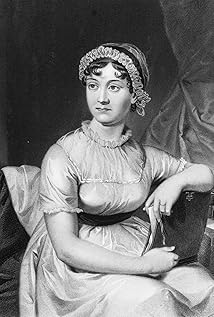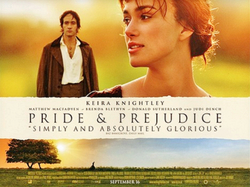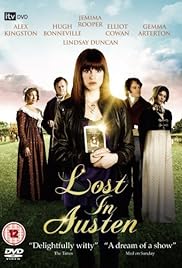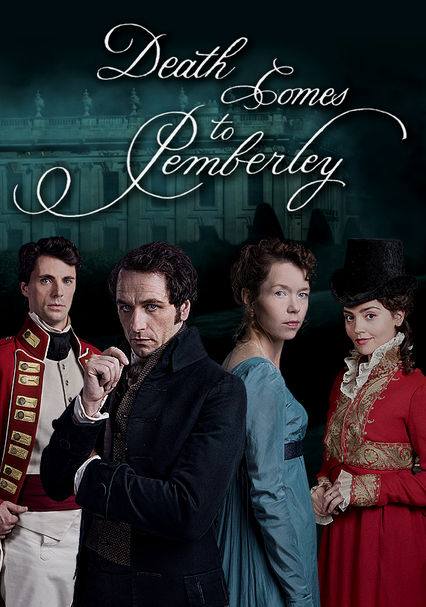It’s a truth universally acknowledged that Jane Austen is the best romance writer of all time. Don’t @ me.
 Pride & Prejudice, Jane Austen’s now classic romance novel, has been beloved by readers for the last 200 years. The story charts the emotional development of Elizabeth Bennet, who learns the error of making hasty judgments and comes to appreciate the difference between the superficial and the essential. The comedy of the writing lies in the depiction of manners, education, marriage, and
Pride & Prejudice, Jane Austen’s now classic romance novel, has been beloved by readers for the last 200 years. The story charts the emotional development of Elizabeth Bennet, who learns the error of making hasty judgments and comes to appreciate the difference between the superficial and the essential. The comedy of the writing lies in the depiction of manners, education, marriage, and  money during the British Regency period.
money during the British Regency period.
“Till this moment I never knew myself.”
― Pride and Prejudice
Pride & Prejudice is one of the most loved and widely adapted of Austen’s works. Since it was first published in 1813, Jane Austen’s Pride and Prejudice has sold over 20 million copies, and is now one of the most recognizable names in British literature. Though it was written over 200 years ago, it remains relevant. Not only is it a beautifully written love story with a happy ending, but it contains timeless insights about human nature that reminds readers that first impressions can often be wrong.
Whether in the original novel, the BBC miniseries, the 2005 Kiera Knightly film, the YouTube series, the Bollywood remake, or even the suspenseful Pride and Prejudice and Zombies, people’s obsession with the Bennet family and Mr. Darcy has done anything but dwindle. Countless fan-fiction series, movies and television series have adapted the story, and it remains one of the most adapted works of the last two centuries.
Pride and Prejudice (1995 BBC mini-series):

The 6-hour 1995 BBC version is the gold standard of a faithful adaptation. Colin Firth’s haughty, smoldering Darcy is the platonic ideal of the character, playing beautifully off of Jennifer Ehle’s wry, mature Lizzy Bennet. Plus, the mini series’ run time means every nuance of Austen’s work (and her quippy dialogue) is represented—while allowing for some creative liberties, like Firth’s Darcy taking a bath, or a dip in a pond that leads to him striding about manfully in a wet white shirt. If you are looking for the most accurate adaptation of the book, this version is unsurpassed.
Pride & Prejudice (2005 film)

Screenwriter Deborah Moggach initially attempted to make her script as faithful to the novel as possible, writing from Elizabeth’s perspective while preserving much of the original dialogue. Director Joe Wright, however, encouraged greater deviation from the text, including changing the dynamics within the Bennet family. Wright and Moggach set the film in an earlier period and avoided depicting a “perfectly clean Regency world”, presenting instead a “muddy hem version” of the time. Janeites notoriously scorn this version because of its plot variation and the historical inaccuracy that even Keira Knightley and Matthew Macfadyen‘s passionate romance cant remedy.
Pride and Prejudice (1980 TV series)
 The 1980 Pride and Prejudice made-for-tv miniseries is a solid, well-respected BBC adaptation–so respected that it almost kept the 1995 version from being made. It has a reputation for being quite faithful to the original dialogue and story lines, which is half deserved. This version is a studio version done on videotape, which makes it feel like watching a play. Most of the action takes place indoors, because videotape doesn’t allow much flexibility for changes of scenery. Charlotte Bronte’s infamous commentary on the novel describes this version very well: “No open country, no fresh air, no blue hill, no bonny beck. I should hardly like to live with her ladies and gentlemen, in their elegant but confined houses.”
The 1980 Pride and Prejudice made-for-tv miniseries is a solid, well-respected BBC adaptation–so respected that it almost kept the 1995 version from being made. It has a reputation for being quite faithful to the original dialogue and story lines, which is half deserved. This version is a studio version done on videotape, which makes it feel like watching a play. Most of the action takes place indoors, because videotape doesn’t allow much flexibility for changes of scenery. Charlotte Bronte’s infamous commentary on the novel describes this version very well: “No open country, no fresh air, no blue hill, no bonny beck. I should hardly like to live with her ladies and gentlemen, in their elegant but confined houses.”
This 1940 American film adaptation was directed by Robert Z. Leonard and starring Greer Garson and Laurence Olivier. The screenplay was written by Aldous Huxley and Jane Murfin, adapted specifically from the stage adaptation by Helen Jerome in addition to Jane Austen’s novel. 
The film makes several significant changes to the story, including swapping the novel’s Regency-era setting for a Victorian one.I found this adaptation be be one of the most historically inaccurate, though it made efforts to closely follow the novel. Though much of the dialogue references back to Jane Austen’s novel, the plot jumps around a bit. Darcy and Wickham’s meeting was anti-climactic. But the most offensive part is the outfits. The costume department got everything wrong in this film — Empire waists are replaced with hoop skirts and crinoline, which filmmakers thought would look better on-screen. In general there’s an enjoyable comic exuberance to the film that matches its updated setting (think the opening scene in Gone With The Wind) more so than the novel’s neoclassical one.
Lost in Austen & Austenland

 Both the 2013 film Austenland and the 2008 British miniseries Lost In Austen center on modern day Austen fanatics who long to trade in their busy modern worlds for her mannered, romantic one. (They both do so over the course of their respective stories; Austenland’s Keri Russell through an Austen-themed resort and Lost In Austen’s Jemima Rooper through a magical portal in her bathroom.) The problem is, any true Austen fan would realize her world was not a particularly welcoming of the 21st century women.
Both the 2013 film Austenland and the 2008 British miniseries Lost In Austen center on modern day Austen fanatics who long to trade in their busy modern worlds for her mannered, romantic one. (They both do so over the course of their respective stories; Austenland’s Keri Russell through an Austen-themed resort and Lost In Austen’s Jemima Rooper through a magical portal in her bathroom.) The problem is, any true Austen fan would realize her world was not a particularly welcoming of the 21st century women.
Becoming Jane
 Becoming Jane is a 2007 British-Irish biographicalromanticdrama film directed by Julian Jarrold. It depicts the early life of the English author Jane Austen and her lasting love for Thomas Langlois Lefroy. The film is partly based on the 2003 book Becoming Jane Austen by Jon Hunter Spence, who was also hired as historical consultant. The final screenplay, developed by Sarah Williams and Kevin Hood, pieced together some known facts about Austen into a coherent story, in what co-producer Graham Broadbent called “our own Austenesque landscape.” According to Hood, he attempted to weave together “what we know about Austen’s world from her books and letters,” and believed Austen’s personal life was the inspiration for Pride and Prejudice. Jarrold began production of the film in early 2006, opting to shoot primarily in Ireland as he found it had better-preserved locations than Hampshire, England, where Austen was raised.
Becoming Jane is a 2007 British-Irish biographicalromanticdrama film directed by Julian Jarrold. It depicts the early life of the English author Jane Austen and her lasting love for Thomas Langlois Lefroy. The film is partly based on the 2003 book Becoming Jane Austen by Jon Hunter Spence, who was also hired as historical consultant. The final screenplay, developed by Sarah Williams and Kevin Hood, pieced together some known facts about Austen into a coherent story, in what co-producer Graham Broadbent called “our own Austenesque landscape.” According to Hood, he attempted to weave together “what we know about Austen’s world from her books and letters,” and believed Austen’s personal life was the inspiration for Pride and Prejudice. Jarrold began production of the film in early 2006, opting to shoot primarily in Ireland as he found it had better-preserved locations than Hampshire, England, where Austen was raised.
The latest in a long line of Pride And Prejudice miniseries, movies, books, spin-offs, and modern-day retellings is Death Comes To Pemberley. Based on a 2011 book by 94-year-old mystery writer P.D. James, the BBC miniseries hops across the pond to PBS on October 26. The adaptation maintains Pride And Prejudice’s period setting but flashes forward to six years after the events of the original novel. Thanks to the time shift, the series is able to deepen some of the original novel’s secondary characters by revisiting them in different circumstances. And even though some of the characterization feels a bit off—Lizzy has lost some of her original spark—and the central mystery lacks complexity, it’s pleasant enough to spend more time in Austen’s familiar world.



6 Replies to “Pride & Prejudice: A Film Guide”